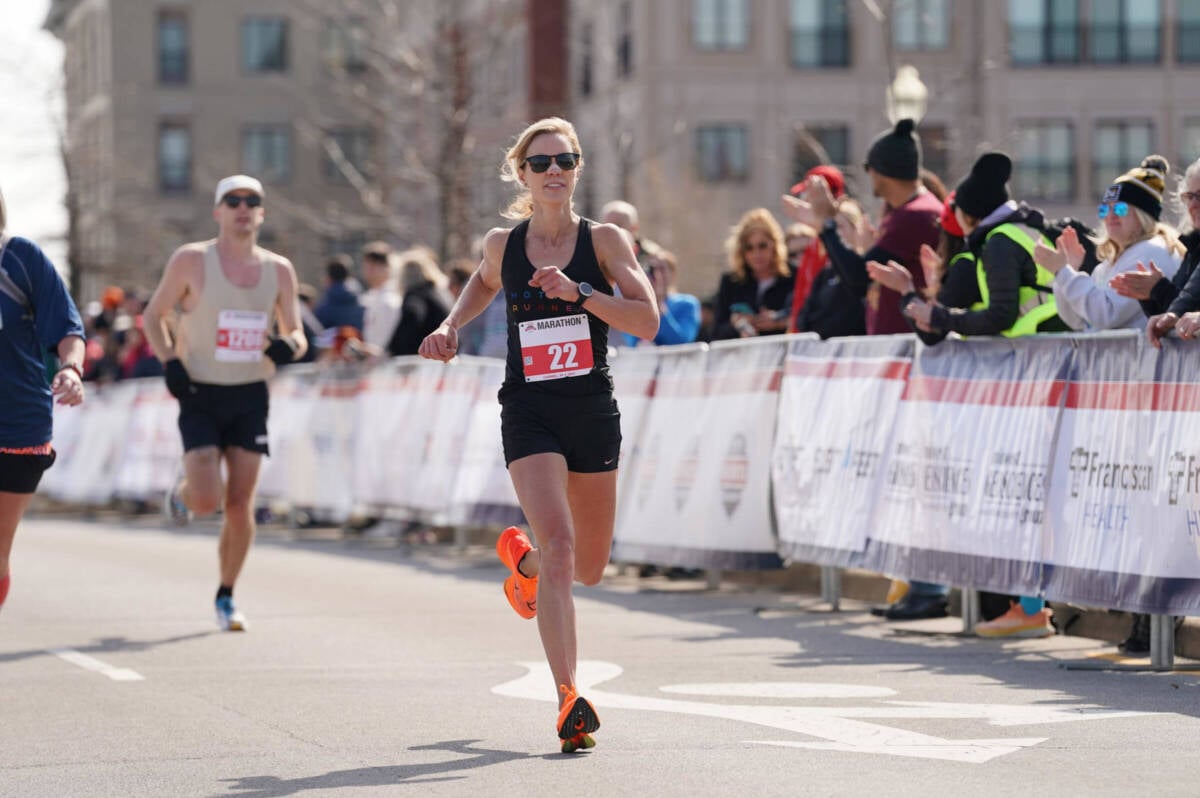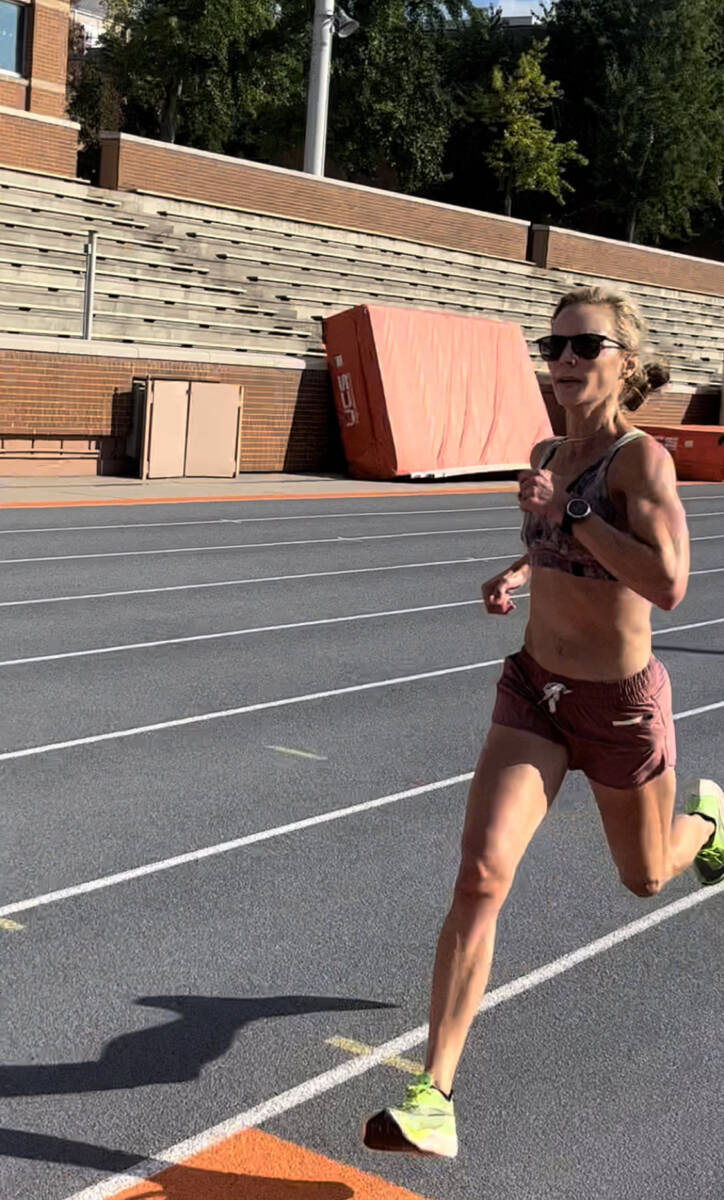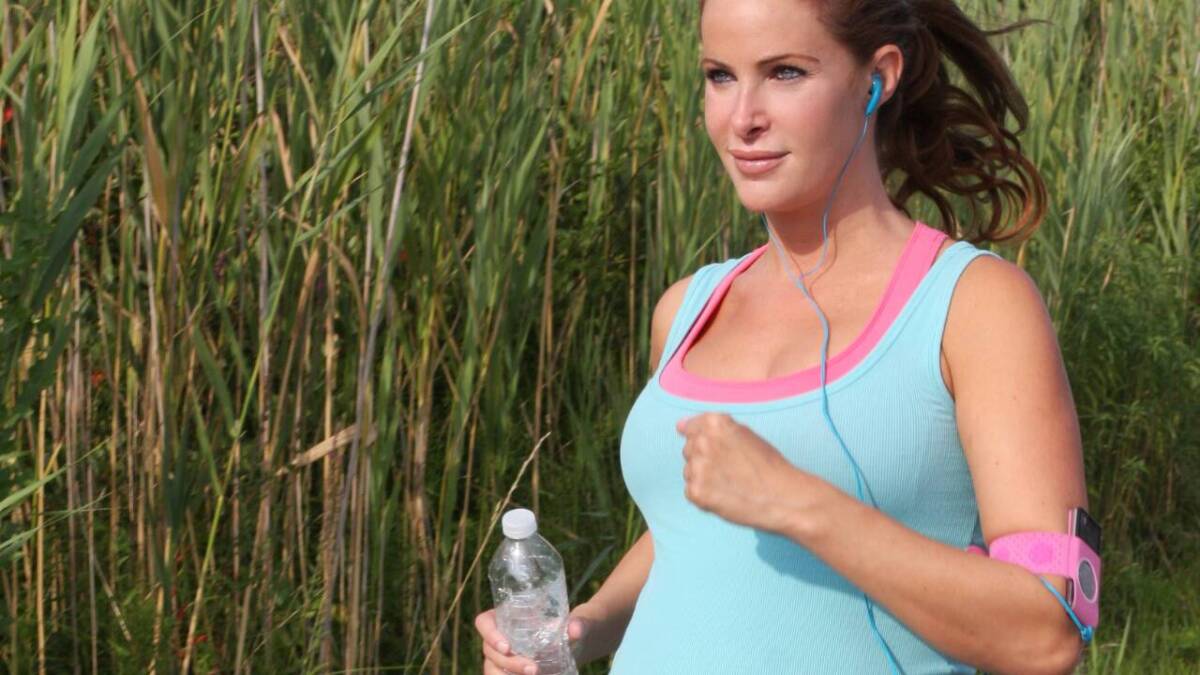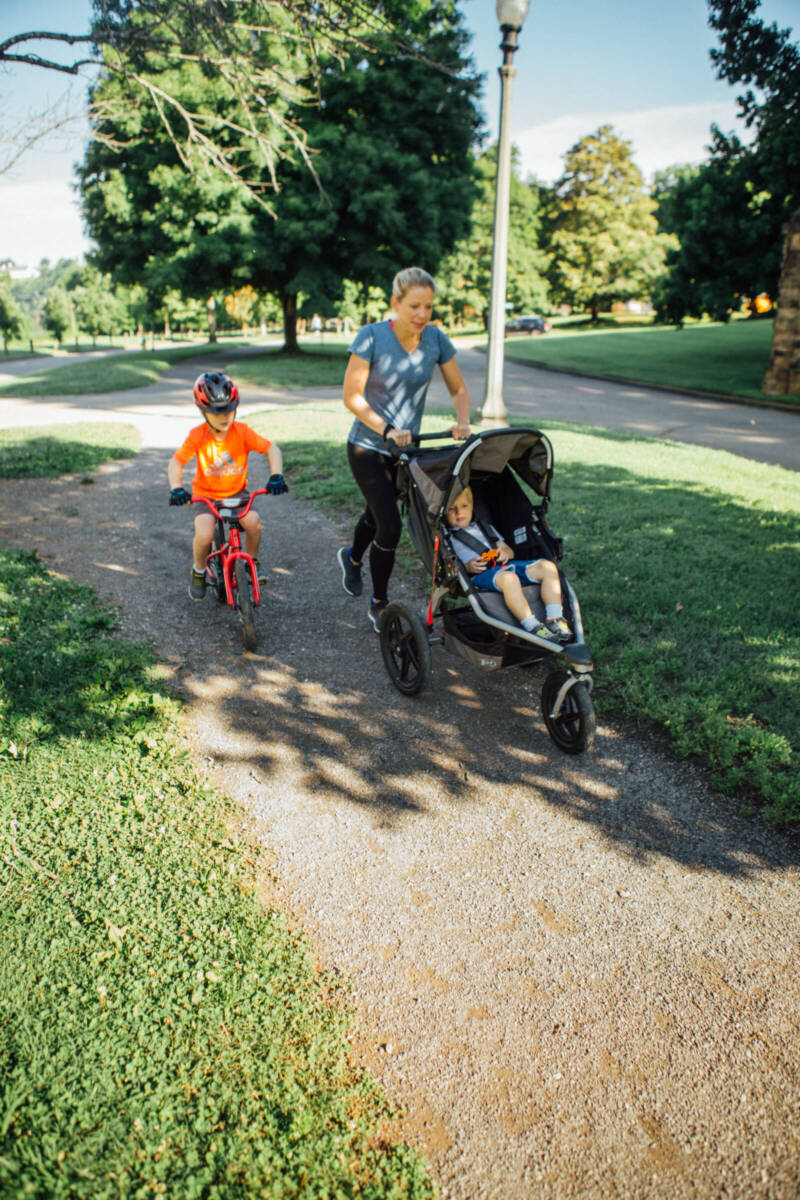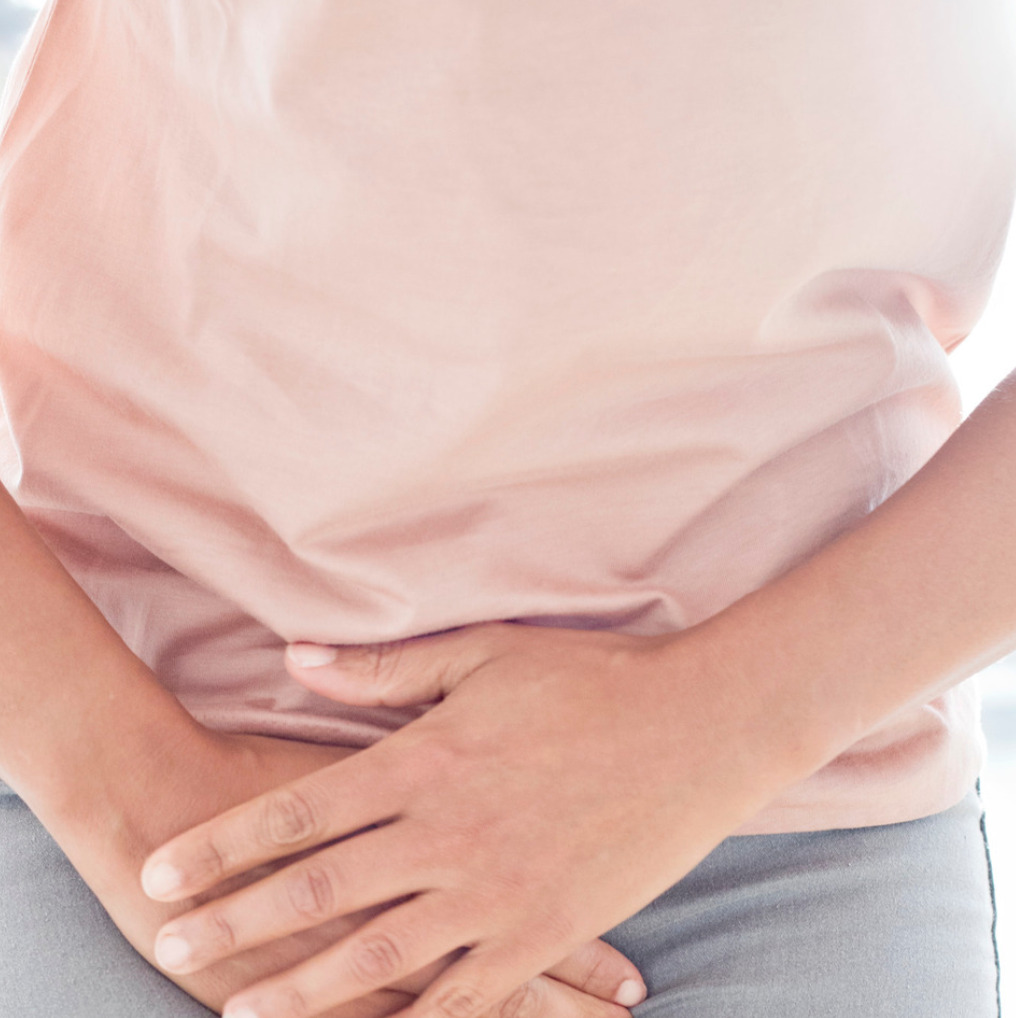Should I Run a Race on My Period?
Getting your period on race day is not a death knell to your running goals. In fact, a 2020 study found that a majority of female marathoners actually ran their best during their high hormone phase and during menstruation. If you suffer from PMS and period symptoms, these steps will help you feel better so you can run your best.

It can seem like the worst thing in the world: getting your period on race day. Many female runners will ask themselves: should I run a race on my period?
Table of Contents
For most people is YES. Yes, you should run a race on your period. Why? There are indicators that racing during female runners’ “time of the month” can be a performance enhancer. Also, there’s no conclusive research to show that running a race on your period can hurt your performance. And, you can mitigate period symptoms on race day with practice and planning.
I remember leading up to my shot chance of qualifying for the Olympic Trials marathon, I was set to be on the second day of my period (my heaviest day). I stressed about it but by the time race day came, I almost forgot about Aunt Flo. Indeed, for many women, getting your period on race day is just something you have to plan for–but not change your plans for.
I am sharing some key considerations for racing on your period.
Should I run a race on my period?
Yes, you should run a race on your period. In fact, for many women, running a race on their periods may give them a running performance boost. (I write more about running on your period here.)
According to Dr. Stacy Sims, a pioneer in research on female athletes, during your period, your estrogen and progesterone levels drop. This lowers your core temperature and widens the range of your heart and perspiration rates, potentially giving you a performance boost. Below are tips for racing on your period.
Your Racing on Your Period Action Plan
Track your period.
The most important thing you can do to help you train with your period is to track it. Tracking your cycle can make sure you have a regular period which is a sign of good health and vital to women’s health. Write down your symptoms from your mental state to your physical feelings.
How did you feel before, during, and after your run? What was your performance like?
Be very specific and look for trends. There are several apps like the Clue App and some built into fitness trackers such as WHOOP that help you keep track of your cycle and training.
If you are affected by hormonal fluctuations, you’re likely to feel crummy during ovulation (roughly day 14 of your cycle) and during PMS, about days 24-28 of your cycle. Note, that menstrual cycles can last between 28 to 40 days.
Train during your period and PMS.
You won’t know unless you try, so don’t shy away from training on your period and during PMS. This is the time to be incredibly aware of how you feel and perform…and what works and doesn’t work for you. Do you run long runs and your speedwork. Don’t avoid running during your period.
Experiment with a menstrual cup during a track workout. Or, see if you can do a long run with Advil without tummy troubles. Or, take magnesium, zinc, and omega-3 fatty acids during PMS and see if it makes a difference.
Just as you practice fueling for long runs, practice how you will handle PMS or your period on race day.
Dress the part.
Dress so that you feel the most comfortable and empowered while training on your period. Some people opt for looser-fitting waistbands and dark double-lined shorts. Some don’t care. Do a dress rehearsal to know what is best for you.
Embrace the race day vibes.
Even if PMS or your period makes you feel lousy, do not underestimate the power of race day excitement. You will be nervous. You will be excited. You will have doubts.
But don’t let your menstrual cycle be one of those doubts. Embrace the nervous energy and channel it to your performance.
Remember, three things:
1) There is no conclusive evidence that your cycle is going to hurt your race day performance 2) Paula Radcliffe broke the marathon world record on her period. 3) You are one tough mother runner who can overcome anything!
FAQs about Running on Your Period
What the research says about running on your period:
The research on running on your period is contradictory and a mixed bag. The takeaway is that how your period affects your running is very individual. Thus, you should track your symptoms including how you feel physically and mentally on the run plus your performance.
Here are some of the research findings on running on your period:
- One 2020 study revealed that out of 189 female marathoners, 106 ran their best during PMS (luteal phase). The others had their best performance during their follicular phase when hormones can be high.
- Another 2020 study of ten female athletes found that PMS (mid-luteal phase) may decrease running economy during high heat and humidity. This is likely because during this phase body temperature rises which can negatively impact running economy—especially in hot weather. However, their performance did not seem to be impacted.
- A meta-analysis and review, also done in 2020, examined 51 and 78 studies to find that performance may be slightly reduced right around your period and end of your period (early follicular phase). This conflicts with the theory that women race best on their periods because it is when their hormones are low and they are “most like men.”
- Two more reviews completed in 2021 found that no conclusion could be drawn as to the link between athletic performance and menstrual cycle phases.
- A 2021 study indicates that you are NOT at more risk for injury in certain phases of your menstrual cycle.
Do you run slower on your period?
Some people may run slower during their periods if their periods are accompanied by intense cramping, headaches, low energy levels, and depression, for example.
These symptoms may be mitigated by the steps below and athletes who experiment with possible solutions. However, the research shows that some women may run faster on their periods due to the low levels of hormones and core body temperature.
Should I run with period cramps?
Yes, you can run with menstrual cramps and heavy blood flow. In fact, there is evidence that running with period cramps could lessen your cramps.
Running releases endorphins that block your brain’s pain receptors. Running also improves blood flow. Your period cramps are caused by your uterus contracting and cutting off circulation which sends pain signals to the brain. Running opens the blood vessels to help reduce menstrual cramp pain.
Your period cramps are also caused by prostaglandins which are involved in inflammation and pain. NSAIDs such as naproxen (Aleve) and ibuprofen (Advil or Motrin) block this effect. So, if running doesn’t help, or you feel like you can’t possibly run because of the pain, take these medications to alleviate your period pains.
If you know when your period is going to start, take them a day or so before. I am never 100 percent sure when my period is going to start, so I have the bottle ready for when the cramps begin. It works.
Sims also suggests supplementing with magnesium, zinc, and omega-3 fatty acids in the week before your period to help reduce cramps and tummy troubles and raise energy levels.
Are iron levels lower during menstruation?
Research shows that your iron levels may be lower during your period. Iron is essential for helping move oxygen from the lungs to the rest of the body while running. So low iron in runners can negatively impact performance.
It’s important to note that not all women will experience low iron levels. However, it’s important to also note to get your blood levels checked every 6 to 12 months. If you are low in iron or ferritin, or borderline, talk to your doctor about taking an iron supplement. You may also make a conscious effort to eat more iron-rich foods such as meat, eggs, and leafy greens—and cook in a cast iron skillet.
Read expert tips on how to alter your fueling if running a marathon on your period here.
Should I wear a tampon while running?
You can wear a tampon while running but you need to consider how heavy your period is and how long you will be running.
If your flow is heavy and you’re running for more than 2 hours, you may consider using a menstrual cup which is a silicone device that can be worn for up to 12 hours, cleaned, and reused.
Other options include running with a sport compact applicator tampon, tucking a spare into your pocket, and changing in a porta-potty. (For most races, time is of the essence, so consider if you’re willing to add a minute or more to your race time to do this).
You can also wear reusable period underwear such as WUKA. Or, opt to free bleed as Kiran Ghandi did in the London Marathon. I advise against running with a pad as that can lead to chaffing and bunching.
Many athletes I coach have asked me if they should change their race or take hormones to alter their period so that it doesn’t fall on race day. Those steps aren’t necessary for most women unless you have symptoms like severe cramping, crushing fatigue, or PMDD that are difficult to overcome on race day.
Do you plan your races around your menstrual cycle?

